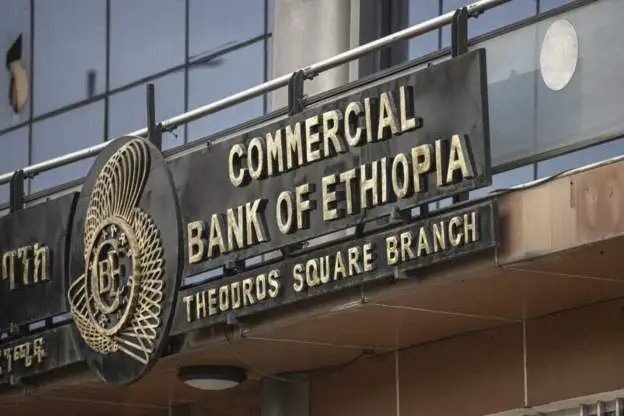Following the government’s recent shift to a flexible exchange rate policy, the Ethiopian birr has plummeted by 60% against the dollar, creating widespread uncertainty and panic among businesses and consumers alike.
At the Samra Hotel, where prices now fluctuate daily, sometimes even hourly, the staff is struggling to keep up.
“Previously, prices would be updated bimonthly, but nowadays it’s on a daily basis, if not by the hour, to reflect the changing market,” said Rahel Teshome, an employee at the hotel. This constant adjustment reflects the broader chaos engulfing the city, as inflation spirals out of control.
Across Addis Ababa, supermarkets have started hoarding goods, fearing further price increases.
To avoid detection by city authorities, who have promised severe crackdowns, these businesses only sell small quantities in their stores, with bulk purchases being relegated to backroom deals at inflated prices. The government’s response has been swift, but the results are mixed.
In Merkato, the capital’s largest open-air market, guards have been deployed to prevent vendors from arbitrarily raising prices.
Just last week, police raided warehouses, confiscating 800,000 liters (210,000 gallons) of edible oil.
The seized goods were redistributed to local cooperatives, who sold them at pre-crisis prices, offering a brief respite to consumers.
However, these efforts have not been enough to curb the rising tide of economic discontent. Over 3,000 stores accused of hoarding have been shut down nationwide, yet the fear of scarcity persists.
The Addis Ababa City Trade Bureau has issued stern warnings, promising more decisive action against those who exploit the floating birr to hike prices. Yet, the government itself has been caught in the crossfire of its own policies.
Last week, the cost of an ordinary passport soared from 2,000 to 5,000 birr, leaving citizens like Almaz Teferi, who had been saving for months, in shock.
“I have been working as a cleaner to raise the fee for the passport. I came and double-checked the fee on Monday and by Thursday the price had been raised quite significantly,” Teferi lamented, highlighting the sudden and severe impact of the policy on everyday Ethiopians.
Ethiopia’s Currency Market Faces Historic Overhaul
The introduction of the flexible exchange rate is a historic shift in a country where, for decades, the government tightly controlled the price of foreign currencies, allowing a thriving black market to operate in parallel.
Now, commercial banks have the authority to set foreign exchange rates, and non-bank entities are permitted to run foreign exchange bureaus for the first time.

This policy change has been lauded by international financial institutions, with the International Monetary Fund (IMF) approving a four-year credit facility worth $3.4 billion to support Ethiopia’s economic reforms.
Of this, $1 billion is to be disbursed immediately to address urgent needs. Kristalina Georgieva, Managing Director of the IMF, described the reforms as a “landmark moment for Ethiopia.”
Despite this international support, the situation on the ground remains precarious. Ethiopia, heavily reliant on imports for essential goods, is facing an increasingly volatile market.
Although the government has imported 14 million liters (3.7 million gallons) of edible oil to stabilize prices, this intervention is barely making a dent in the overall cost of living, which continues to rise unabated.
Experts warn of tougher days ahead. Public policy specialist Getachew T. Alemu, based in Addis Ababa, expressed concern for those with fixed incomes, who are likely to bear the brunt of the economic shifts.
“Things could really get worse, especially for fixed incomers, unless cautious policy actions are taken,” Alemu cautioned, suggesting that the immediate IMF funds may not be sufficient to stave off further economic distress.
READ ALSO: Political Scientist Highlights Impact of Minority Parties on December Polls



















